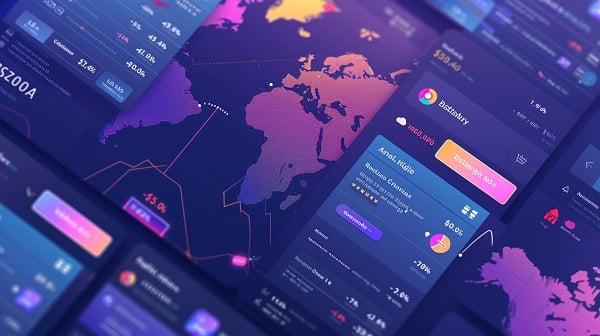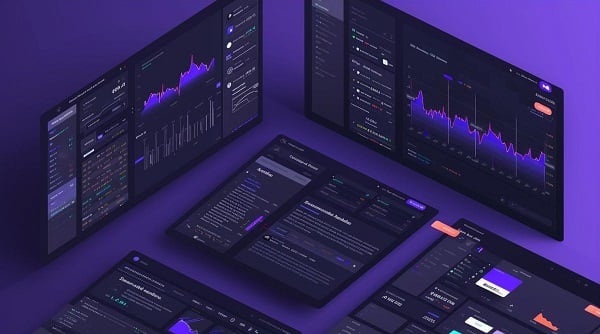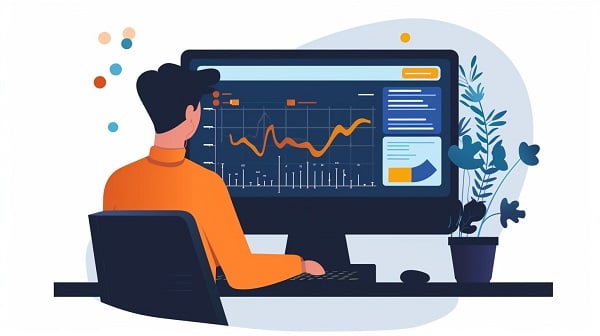In e-commerce and digital markets, pricing strategies can make or break a business. Monitoring competitor prices has become a critical tactic for staying competitive, understanding market dynamics, and optimizing profit margins. Users seek actionable, cost-effective, and scalable solutions to track pricing trends without facing technical hurdles like website blocks or data inaccuracies. This article explores practical methods, essential tools, and the pivotal role of proxies in delivering effective and geo-targeted price monitoring in 2025.
What Is Competitor Price Monitoring?

Competitor price monitoring is the automated process of tracking rivals’ product prices across e-commerce sites to inform pricing strategies, promotions, and inventory decisions. It involves periodic data collection, change detection, and alerting when prices shift.
Why Monitor Competitor Prices?
Tracking competitor prices offers several advantages:
1. Competitive Edge: Adjust pricing to stay ahead or match market leaders.
2. Trend Analysis: Identify seasonal shifts or promotional patterns.
3. Profit Optimization: Strike a balance between margins and demand.
4. Customer Perception: Maintain fair pricing to build trust.
With millions of products online, manual efforts fall short. Automated solutions, enhanced by proxies, address the scale and complexity modern businesses face.
Why Proxies Are Essential?
High-frequency requests trigger IP bans, rate limits, and CAPTCHAs. Residential proxies solve this by:
- Anonymity & Rotation: Thousands of real-user IPs rotate per request.
- Geo-Targeting: Fetch region-specific prices (US, EU, APAC).
- Session Control: Sticky sessions maintain login/checkout flows.
Quick Proxy Setup (Prerequisite for Methods 3–6)
Before diving into methods, set up your proxy foundation:
1. Choose a Plan: Check residential proxy plans and select based on volume & locations.
2. Grab Credentials: Note the IP, port, username, and password from the dashboard.
3. Test Connectivity (Python example):
python
import requests
proxies = {
'http': 'http://user:[email protected]:8000',
'https': 'http://user:[email protected]:8000'
}
resp = requests.get('https://api.ipify.org?format=json', proxies=proxies, timeout=5)
print(resp.json())
A matching IP confirms success.
Method 1: Manual Price Checks
Perfect if you’re new or have just a few competitors, like fewer than 10 SKUs.
Steps:
1. List Competitors: Identify 3-5 key rivals based on market overlap.
2. Schedule Checks: Visit websites daily or weekly, depending on pricing volatility.
3. Log Data: Record prices, discounts, and timestamps in a spreadsheet (e.g., Google Sheets).
Pros: Free and simple.
Cons: Takes time and doesn’t work for lots of products.
Method 2: SaaS Price Monitoring Platforms
A faster way with ready-made tools. You can choose it when need to track hundreds of SKUs with minimal tech resources.
Steps:
1. Select a Tool and Sign Up: Try Prisync or Competera (more on these later).
2. Configure Targets: Input products and competitors via CSV or URL list.
3. Configure Alerts for %-change thresholds.
4. Integrate Proxies under Settings → Proxy → proxy.goproxy.com:8000 + creds.
Pros: Turnkey dashboard, built-in analytics.
Cons: Recurring fees, limited customization.

Method 3: Managed Scraping Services
Outsource scraping logic and proxy management to a specialist provider via REST API calls. Code-free scaling with custom selectors.
Steps:
1. Install Client:
bash
npm install axios dotenv
2. Submit Job (Node.js example):
js
require('dotenv').config();
const axios = require('axios');
async function submit(url, selector) {
const {data} = await axios.post(
'https://api.goproxy.com/scraping/jobs',
{url, selectors: [selector]},
{headers: {'Authorization': `Bearer ${process.env.GOPROXY_API_KEY}`}}
);
return data.jobId;
}
3. Poll for Results and integrate into your BI or pricing engine.
Pros: No infra, auto-rotation, retries.
Cons: Higher per-request cost.
Method 4: Custom Scraping with Scripts
For users ready to code, who need full control and unlimited scale. Build tailored Python/Node.js scripts using HTTP clients and parsers.
Steps:
1. Environment Setup:
bash
pip install requests beautifulsoup4
npm install axios cheerio dotenv
2. Proxy Configuration (proxies.py example):
Python
PROXIES = ['http://user:[email protected]:8000', …]
3. Fetch & Parse:
Python
import random, requests
from bs4 import BeautifulSoup
from proxies import PROXIES
def fetch_page(url):
proxy = {'http': random.choice(PROXIES)}
r = requests.get(url, proxies=proxy, timeout=10)
return BeautifulSoup(r.text, 'html.parser')
4. Extract Prices:
python
price = soup.select_one('.price').get_text(strip=True)
5. Detect & Store: Compare to DB values, update on change.
6. Schedule: Use cron or a job scheduler; proxies rotate each run.
Pros: Cost-effective, fully customizable
Cons: Requires coding & maintenance
Method 5: Headless Browser Scraping
JavaScript-rendered sites, infinite scroll.
Steps:
1. Install Puppeteer:
bash
npm install puppeteer
2. Launch with Proxy:
js
const browser = await puppeteer.launch({
headless: true,
args: [`--proxy-server=proxy.goproxy.com:8000`]
});
3. Authenticate and Scrape dynamic prices.
4. Rotate Proxy per browser context or per navigation.
Pros: Renders JS, handles SPAs
Cons: Slower, heavier resource use
Method 6: API-First Custom Monitoring
Build a microservice around price data.
Steps:
1. Design API endpoints for “fetchPrice(competitor, sku)”.
2. Integrate proxy logic in your HTTP client.
3. Return structured JSON to front-end dashboards or ML models.
Pros: Clean architecture, easily extendable
Cons: Highest dev overhead

Top 5 Competitor Price Monitoring Tools in 2025
Here’s a rundown of leading tools tailored to various industries:
| Tool |
Key Features |
Best For |
Pricing |
| Prisync |
Dynamic pricing, Shopify/Google Shopping integration |
e-commerce SMBs |
$99 – $399/month |
| Competera |
AI-powered repricing, advanced analytics |
Retail & grocery chains |
Custom |
| Price2Spy |
Historical data, MAP monitoring, site crawling |
Online retailers, manufacturers |
$157 – $1,579/month |
| Skuuudle |
Pricing intelligence, product matching, daily insights |
Brands & agencies |
€399/month |
| Dealavo |
Enterprise-grade price intelligence and monitoring |
Large retailers |
Custom |
These tools provide robust features, from real-time updates to advanced analytics, making them indispensable for price monitoring.
Final Thoughts
Start simple with manual checks or tools like Prisync if you’re new. As you grow, try scraping proxies for more control. GoProxy makes it all easier and more reliable. Pick what fits your skills and scale up when you’re ready! Sign up today to get a free trial!
FAQs
1. What’s the easiest way to start monitoring competitor prices?
Begin with manual checks for a few competitors, then transition to tools like Prisync for automation.
2. Which method suits small vs. large catalogs?
- Small (< 500 SKUs): SaaS tools for ease.
- Large (> 10,000 SKUs): Custom scripts + rotating proxies or managed services.
3. What proxy type is best?
Residential for stealth; datacenter for lower cost/high-speed tests.
4. Can proxies used to handle dynamic pricing on competitor sites?
Yes, GoProxy’s rotating IPs capture real-time updates, even on JavaScript-heavy pages.
5. How to troubleshoot proxy failures during scraping?
Check credentials, test with a single request, and contact GoProxy’s support for rapid resolution.















